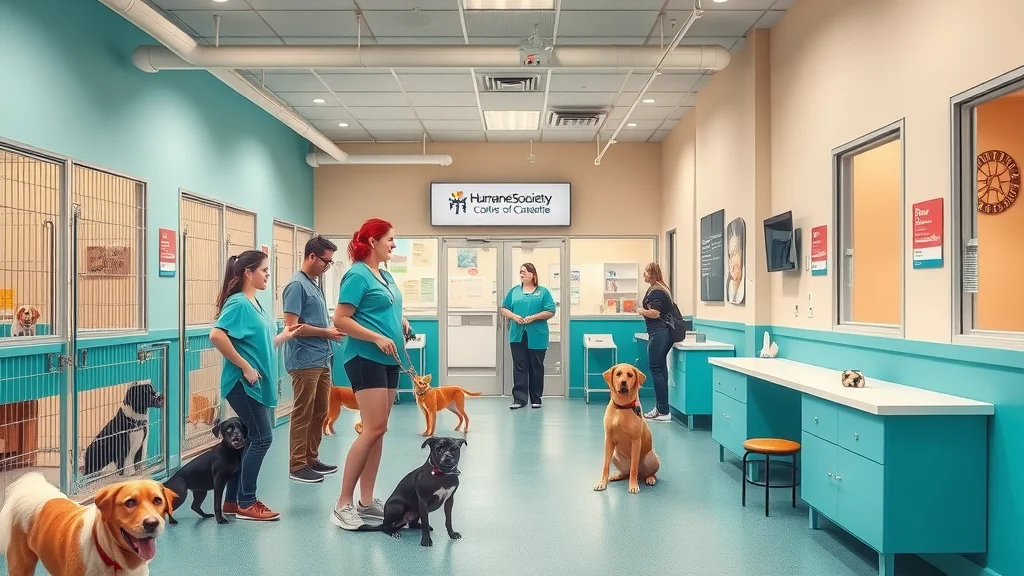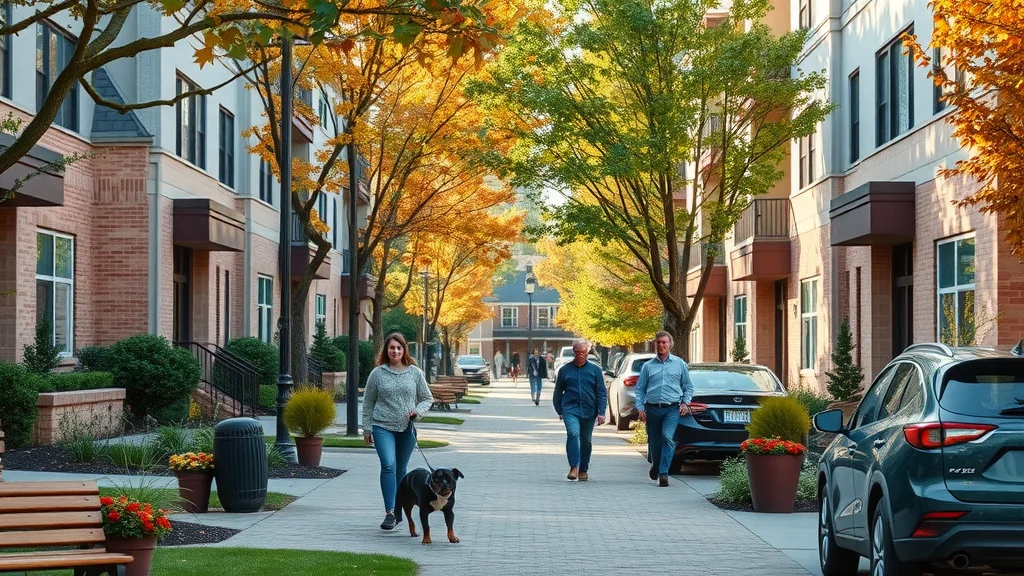Did you know Charlotte, NC boasts one of the highest numbers of registered pets per capita in the Southeast? For pet owners—whether you rent, own a home, or manage property—understanding Charlotte NC pet policies is more than just common courtesy; it's a legal requirement that impacts your day-to-day life. From pet rent and deposits to leash laws and pet limits, you'll want to stay ahead of the curve to avoid fines, ensure your pet’s safety, and maintain positive relationships with neighbors and property managers alike.
Unpacking Charlotte NC Pet Policies: Surprising Local Facts and the Basics
“Did you know Charlotte, NC has one of the highest numbers of registered pets per capita in the Southeast? Understanding local pet policies isn’t just a courtesy—it’s a requirement.”

Charlotte’s reputation as a pet-friendly city isn’t just hype; it’s backed by numbers and strong regulations designed to foster both public safety and animal welfare. With such a significant pet population, pet owners and the broader Charlotte community must understand the practical and legal framework set by the city. This includes everything from leash laws and dog park rules to licensing requirements and property management protocols involving pet rent and deposits. These policies are put in place by the City of Charlotte in partnership with Mecklenburg County, and they're supported by local organizations like the Humane Society of Charlotte. Knowing your obligations—and rights—protects you and your pets, and contributes to a safer, happier Charlotte area.
Staying compliant with local regulations isn’t just about following rules; it's about building a harmonious relationship between pet owners, landlords, neighbors, and the community at large. Not only does this help prevent property damage and resolve disputes, but it also ensures our canine and feline companions can thrive alongside us. Read on to discover the most important facts about Charlotte NC pet policies, and why they matter for every resident and property owner in the Queen City.
What You'll Learn About Charlotte NC Pet Policies
- Overview of core Charlotte NC pet policies
- Requirements for pet licensing and registration
- Details on pet rent and pet deposit obligations
- Property management rules and tenant responsibilities
- Leash laws and dog parks compliance
- Limits on household pets
- Resources including Humane Society of Charlotte and City services
Essential Charlotte NC Pet Licensing and Registration Policies
Do you have to license your pet in Charlotte?

All pet owners in Charlotte must comply with local regulations for pet licensing, which are strictly enforced to promote safety and animal welfare. If you have a dog or cat in Charlotte, the law requires you to obtain an annual license for each animal age four months or older. Licensing helps city and animal care officials quickly return lost pets, track vaccinations, and enforce animal control laws across the Charlotte area. The process generally involves submitting proof of your pet’s rabies vaccination and paying a modest fee—fees are typically reduced for spayed or neutered animals, promoting responsible pet ownership.
To register your pet, visit the Charlotte-Mecklenburg Animal Care & Control office, one of several satellite licensing offices in Mecklenburg County, or apply online through the official city website. Licensing fees vary but are generally under $30 per year for altered pets. Failing to license your animal can result in a fine for failure to comply, with penalties sometimes reaching $50 or more for each unlicensed pet. Keeping your licensing current not only follows the letter of the law but also protects your pet in emergency situations—unlicensed pets are less likely to be quickly reunited with their owners if found roaming or impounded.
Charlotte NC Pet Rent and Pet Deposit Rules Explained
Pet rent, pet deposit, and pet deposits: What’s the difference?
Living in an apartment or rental property in Charlotte comes with specific rules regarding pets. Property management companies in the city often charge monthly pet rent (an additional amount added to your rent for each pet), a pet deposit (a one-time upfront payment to cover potential property damage caused by pets), and occasionally, non-refundable pet fees. It’s important for both tenants and landlords to distinguish between these different charges, as pet rent is non-refundable and adds to your monthly housing cost, while pet deposits may be refundable based on property inspection at move-out.
Charlotte's pet rent averages $20–$35 per month per pet, while pet deposits typically range from $200 to $400 per pet. Some property management firms combine deposits with non-refundable pet fees; be sure to thoroughly read your lease agreement so you know which fees apply. Laws in North Carolina allow landlords to collect reasonable fees to mitigate risk, but prohibit excessive or discriminatory charges. Whether you’re a renter or a property manager, understanding these policies ensures transparency and prevents future disputes around property damage, cleaning, or unexpected charges at lease end.
| City | Average Pet Rent (Monthly) | Pet Deposit Range | Refundable? |
|---|---|---|---|
| Charlotte, NC | $20–$35 | $200–$400 | Yes, often |
| Atlanta, GA | $25–$50 | $300–$500 | Yes, often |
| Raleigh, NC | $20–$30 | $200–$400 | Yes, often |
| Nashville, TN | $25–$40 | $250–$450 | Yes, often |

Charlotte NC Property Management and Pet Policies for Tenants
Property management perspectives on enforcing pet rent and pet deposit
For many property management companies in the Charlotte city limits, pet rent and pet deposits represent vital tools for ensuring responsible pet ownership without risking significant property damage. Property management teams frequently communicate expectations via clearly defined lease agreements, emphasizing detailed policies for pet deposits, monthly rent surcharges, and cleaning fees. When disputes arise, Charlotte property managers often rely on documented evidence, such as inspection reports and photographs, to reach fair conclusions about damages caused by pets.
From a tenant’s perspective, clarifying these pet-related costs during lease negotiations is key to avoiding surprises or misunderstandings. Some property management firms in the Charlotte area may offer pet policy flexibility for smaller pets or service animals, but regular updates and transparency are essential. Both tenants and landlords are encouraged to conduct thorough move-in and move-out walkthroughs together, discussing any pet damage or maintenance concerns in real time. Ultimately, open communication and transparency help sustain respectful, pet-friendly relationships between property owners and renters, reducing turnover and fostering a positive community atmosphere in pet-friendly housing.
Leash Laws, Dog Parks, and Outdoor Charlotte NC Pet Policies
Leash law compliance for Charlotte pet owners
Leash laws in Charlotte are strictly enforced to ensure public safety, prevent property damage, and protect both pets and people. All pet owners must keep dogs on a leash whenever off their property, except in designated off-leash areas like city dog parks. While it might be tempting to let your pet run free in neighborhood green spaces, violators can face a fine for failure to comply and potential liability for injuries or property damage caused by pets.
Charlotte’s most popular dog park destinations, such as Frazier Park and Reedy Creek Park, are specifically equipped for off-leash play, provided your dog is under voice control and you monitor its behavior closely. The Humane Society of Charlotte and the Society of Charlotte offer guidance to promote safe, positive pet interactions in public spaces. Remember, off-leash privileges are a community trust—abide by posted rules, ensure your dog’s vaccinations and licenses are up to date, and always clean up after your pet. Willfully violating leash “laws” can endanger your pet and draw unneeded attention from animal control officers.

Dog park and dog parks: Navigating Charlotte’s best pet-friendly spots
Charlotte features an abundance of dog parks for pet owners seeking socialization and exercise opportunities for their furry friends. Frazier Park Dog Park in Uptown offers separate areas for large and small dogs, shaded benches for pet owners, and easy access to water stations. Reedy Creek Park boasts expansive lawns, agility equipment, and forested trails—making it a local favorite for dog and dog owner outings alike. Other popular off-leash dog parks include Ramsey Creek Park (which even features a dog-friendly beach area!), and several neighborhood “inside a fence” play yards for apartment residents.
When visiting Charlotte’s dog parks:
- Ensure vaccination and dog licenses are current
- Supervise your pet and intervene at the first sign of aggression
- Pick up after your dog to protect the park for others
- Follow posted park rules regarding hours, breed restrictions, and age or health guidelines
Pet Limits and Household Animal Laws in Charlotte NC
How many dogs are you legally allowed to own in NC?

Charlotte’s pet policies go beyond licensing and public safety—they also set limits on the number and types of pets a resident can keep. Generally, Mecklenburg County zoning ordinances allow up to three adult dogs and five adult cats per single-family household, though the specific number may vary by home type and homeowner association (HOA) rules. Multifamily properties, apartments, or townhomes may set stricter rules or require additional permissions from property management. In certain Charlotte neighborhoods, especially those governed by HOAs or deed covenants, pet limits can be even tighter or apply only to specific breeds.
North Carolina law allows local governments like the City of Charlotte to establish animal and pet limits for households. This is intended to balance responsible pet ownership with community welfare, preventing overcrowding, noise complaints, and sanitation issues. If you exceed local pet limits or violate zoning rules, you risk citations, fines, or mandatory removal of extra animals. Always check your specific lease agreement and HOA bylaws before adding another pet, and if you’re unsure about current charlotte nc pet policies, consult the Humane Society of Charlotte or your local animal control agency for up-to-date guidance.
Comprehensive Overview of General Animal Laws in Charlotte and North Carolina
What are the animal laws in North Carolina?
North Carolina law provides a comprehensive set of statutes protecting animal welfare and maintaining public safety throughout the Charlotte area. These laws require owners to provide adequate shelter, food, water, and veterinary care for animals in their care. Notable statutes include state-mandated rabies vaccinations for dogs and cats, enforcement of dangerous animal control policies, and clear penalties for neglect, abandonment, or abuse.
Within Charlotte city limits, animal care officers enforce state regulations alongside additional city-specific ordinances around nuisance animals, stray animal pickup, and leash laws. Violators of animal control statutes may face fines, removal of the animal, or even criminal charges in cases of abuse. If you’re a pet owner, property manager, or simply a concerned neighbor, understanding these laws helps you advocate for both animal safety and responsible community standards across all neighborhoods.
Local Resources: Humane Society of Charlotte and Support for Pet Owners

- Humane Society of Charlotte services and educational programs: Adoption, foster care, spay/neuter clinics, and community wellness events to support animal care and responsible pet ownership.
- Contact information for pet-related emergencies: For emergencies, contact Charlotte-Mecklenburg Animal Care & Control at 311 (local) or (704) 336-7600.
- Links to city animal control and support agencies: Visit the City of Charlotte’s official website for forms, pet licensing, service requests, and updated animal ordinances.
Frequently Asked Questions about Charlotte NC Pet Policies
-
Do you have to license your pet in Charlotte?
Yes, Charlotte NC requires all dogs and cats age four months or older to be licensed annually. This ensures rabies vaccination compliance, helps locate lost pets, and protects public safety. Failure to license your pets can result in fines from animal control and may complicate reclaiming your pet if impounded. -
Is Charlotte, NC a dog friendly city?
Absolutely! Charlotte offers a large network of dog parks like Frazier Park and Reedy Creek, pet-friendly apartment complexes, and local businesses welcoming dogs and cats. The city invests in green spaces and events benefitting pets and their owners while upholding important pet policies for the welfare of all residents. -
How many dogs are you legally allowed to own in NC?
In Charlotte (Mecklenburg County), you may keep up to three adult dogs or five adult cats at a single-family home, but limits may be lower based on property type or HOA regulations. Always check local ordinances and your lease before acquiring additional pets. -
What are the animal laws in North Carolina?
State law sets baseline animal welfare rules, including rabies vaccinations, anti-cruelty statutes, leash and dangerous animal regulations, and guidance on pet ownership limits. City and county ordinances may add further requirements—always ensure you comply with both for the safety of your pet and neighbors.
Key Takeaways for Owners Navigating Charlotte NC Pet Policies
- Always check lease agreements for pet rent and deposit conditions.
- Stay current on pet licensing and registration deadlines.
- Respect leash laws and use designated dog parks.
- Connect with local resources like the Humane Society of Charlotte.
- Understand the limits on the number of pets permitted.
Final Thoughts on Charlotte NC Pet Policies
Effective navigation of Charlotte NC pet policies enhances community welfare and supports responsible pet ownership. Keeping informed of changing rules benefits both tenants and property managers.
 Add Row
Add Row  Add
Add 




Write A Comment